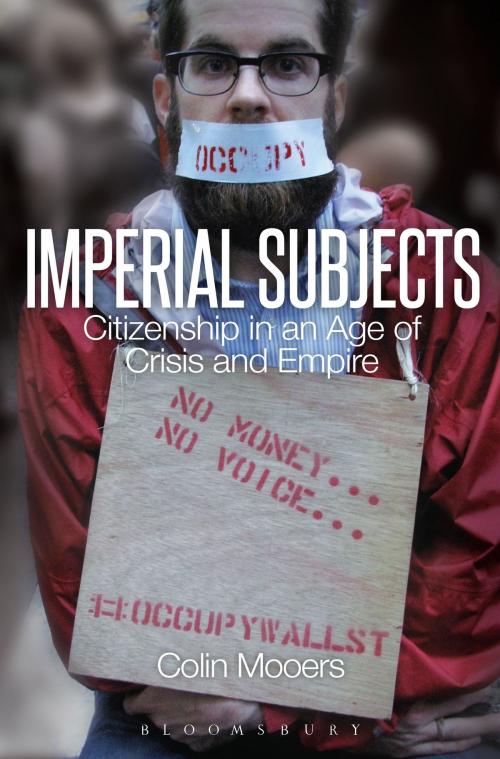Imperial Subjects
Citizenship in an Age of Crisis and Empire
Nonfiction, Social & Cultural Studies, Political Science, International, International Relations, Social Science| Author: | Dr. Colin Mooers | ISBN: | 9781441164933 |
| Publisher: | Bloomsbury Publishing | Publication: | August 28, 2014 |
| Imprint: | Bloomsbury Academic | Language: | English |
| Author: | Dr. Colin Mooers |
| ISBN: | 9781441164933 |
| Publisher: | Bloomsbury Publishing |
| Publication: | August 28, 2014 |
| Imprint: | Bloomsbury Academic |
| Language: | English |
This highly original work posits that the changes in the nature of citizenship caused by neoliberal globalization must be understood as the result of an ongoing imperial project.
Although they may seem admirable, policies such as humanitarian and citizenship rights are really an imperial venture led by global institutions and corporations in order to export capitalist market forces worldwide. This entails a form of neoliberal citizenship in which social security is replaced by market insecurity and rising inequality. In this light, the citizen becomes an "imperial subject" whose needs and desires have been colonized by the global market. However, emerging social forces in Latin America and elsewhere have begun to challenge this imperialist logic, fostering a resistance that may bring forth a new global vision of citizenship.
This unique analysis draws together neoliberal citizenship, new imperialism, and the creation of 'financial subjects' into an innovative theoretical exploration. By expanding the debate on global citizenship, Imperial Subjects will engage readers in political and social sciences interested in contemporary political thought, citizenship, and globalization.
This highly original work posits that the changes in the nature of citizenship caused by neoliberal globalization must be understood as the result of an ongoing imperial project.
Although they may seem admirable, policies such as humanitarian and citizenship rights are really an imperial venture led by global institutions and corporations in order to export capitalist market forces worldwide. This entails a form of neoliberal citizenship in which social security is replaced by market insecurity and rising inequality. In this light, the citizen becomes an "imperial subject" whose needs and desires have been colonized by the global market. However, emerging social forces in Latin America and elsewhere have begun to challenge this imperialist logic, fostering a resistance that may bring forth a new global vision of citizenship.
This unique analysis draws together neoliberal citizenship, new imperialism, and the creation of 'financial subjects' into an innovative theoretical exploration. By expanding the debate on global citizenship, Imperial Subjects will engage readers in political and social sciences interested in contemporary political thought, citizenship, and globalization.















